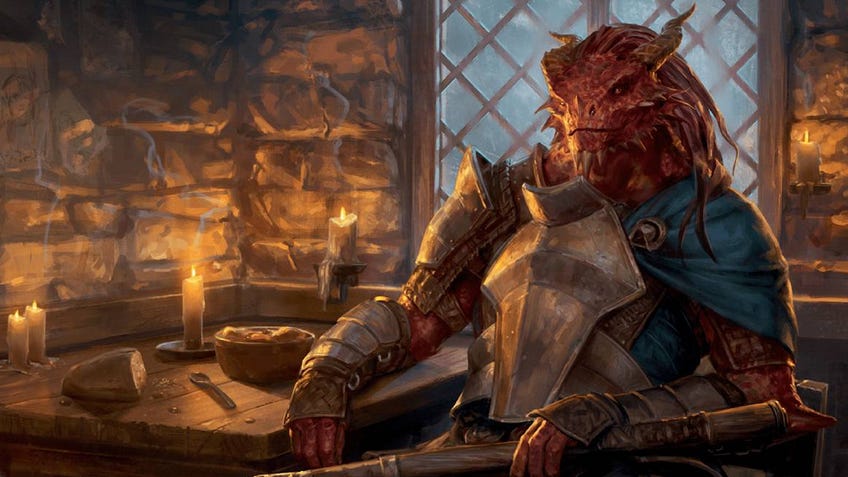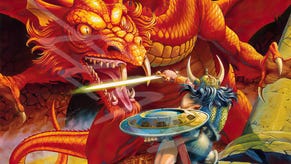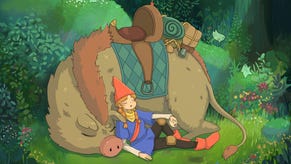Charisma in D&D isn't just about confidence - and that goes for real life, too
What a charmer.
Charisma is perhaps the most entertaining trait to roleplay in Dungeons & Dragons. It’s the stat that governs your social skills, and is in charge of not just your ability to perform and entertain people, but persuade, intimidate and deceive them. If you want to play the game of messing with NPCs and talking your way out of surefire battles, charisma is the best place to sink your points.
While a few different D&D 5E classes utilise charisma as one of their most important traits, the one that champions it loudest is the bard. You could argue that they’re the loudest because of all the singing, but it’s actually because they’re nearly always depicted as characters who can only think salaciously. Perhaps because of this, charisma as a whole has sort of become the “horny” stat. There are an infinite number of memes and videos showing off bards as trying to seduce dragons, tables, evil minions and basically anything else that may or may not move. It’s a funny joke, but it also does a great disservice to how versatile charisma is - both in D&D and in real life.
Confidence is a big part of charm for a lot of people. Someone striding into and suddenly commanding the attention of a room, whether that’s via jokes, a big projecting voice or just a natural ease with which they navigate through social situations. That often feeds into flirting too, with extroverted people flashing smiles and giving out compliments. Confidence isn’t always flirty, but it’s often depicted as such in a lot of forms of media, along with many of our home D&D sessions.
Some people are just charming by default, with no wordy flourishes or deception necessary.
While that is certainly one aspect of charisma, we’ve all been charmed by a plethora of things outside of just that. Take, for example, a cat. A cat that walks up to you and purrs, or lies on its back (probably to try and scratch your arm off) isn’t flirting, but it is still deeply charming. Cats are still confident most of the time, so let’s go beyond that too.
There’s also a lot of charm in those that aren’t confident. Someone who is nervous but endearingly honest or naive can still win over most people without having to even try. These kinds of people are deeply charming without ever appealing to any version of flattery or suavity. Some people are just charming by default, with no wordy flourishes or deception necessary. It’s worth keeping that in mind when it comes to D&D, because it opens up a wide range of other characters you can play - and that’s a big part of the appeal.
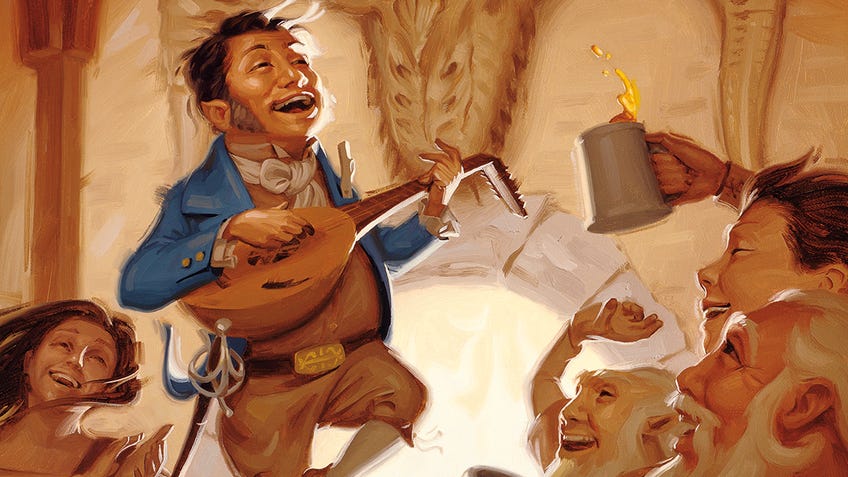
I’m currently playing a College of Spirits bard called Kenn. While he did start as sort of a bit - a himbo with no intelligence, wisdom or dexterity, but plenty of strength, constitution and charisma - his journey as a character has been amazing to roleplay.
D&D describes charisma as being a measure of the force of someone’s personality.
I had initially envisioned him as a fairly standard bard, albeit one who’s not really aware of the fact that he’s flirting his way through every encounter. However, with him being below the average level of intelligence in the world, what became evident in my first session playing as Kenn is that he’s not only not aware of his charm, but also not especially interested in it either.
Kenn hasn’t flirted with a single character, instead winning people over while being deeply dense about turns of phrases or words with more than two syllables. One of my favourite things to do as Kenn is to make intelligent ‘stupid’ jokes; as when another character used the word “equanimity” and Kenn asked if that had anything to do with horses (equine). That allows me to play him as being a bit clueless, but makes pretty much every in-game character want to ruffle his hair.
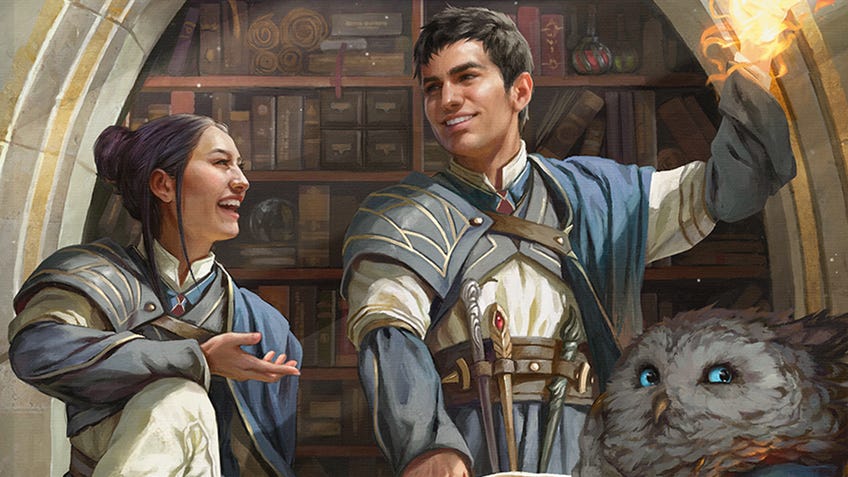
It’s not like this version of charm is the only version out there, either. D&D itself describes charisma as being a measure of the force of someone’s personality. Some of the key skills in this wheelhouse are deception and intimidation. So you could play a high-charisma paladin as someone who barely speaks at all - but when they do, it’s with such an impact that all of those around them are afraid to go against them. Alternatively, you could play a high-charisma sorcerer who weaves webs of lies along with their spells, and tries to manipulate people into positions that are more advantageous for them.
The point is that when they speak they are heard and they are believed - whether that’s because they’re an incredible negotiator, one who’s incredibly good at politics or just someone who puts the fear of the gods into all who witness them. Their charisma is in their confidence, but also in their control of those social situations. If you want an example of someone who’s deeply charming without being cocky or over-the-top, just look at Keanu Reeves. For a more firm version of classic charisma, watch any Marvel film, especially from good old Tony Stark.
Thankfully, there is a large part of the community that are working on unshackling the stat from characters who approach every problem loins-first, and that’s good to see, but it’s something that could go further. Charisma isn’t just about flirting and it isn’t just about charm. Understanding that means you can play characters in so many ways. You could even create a silent character who simply has an incredibly menacing face, and play them as a high-charisa force of nature who can get what they want with just a look.
Don’t be held back by the cliches, and you’ll have a much better time with roleplaying - and life.
